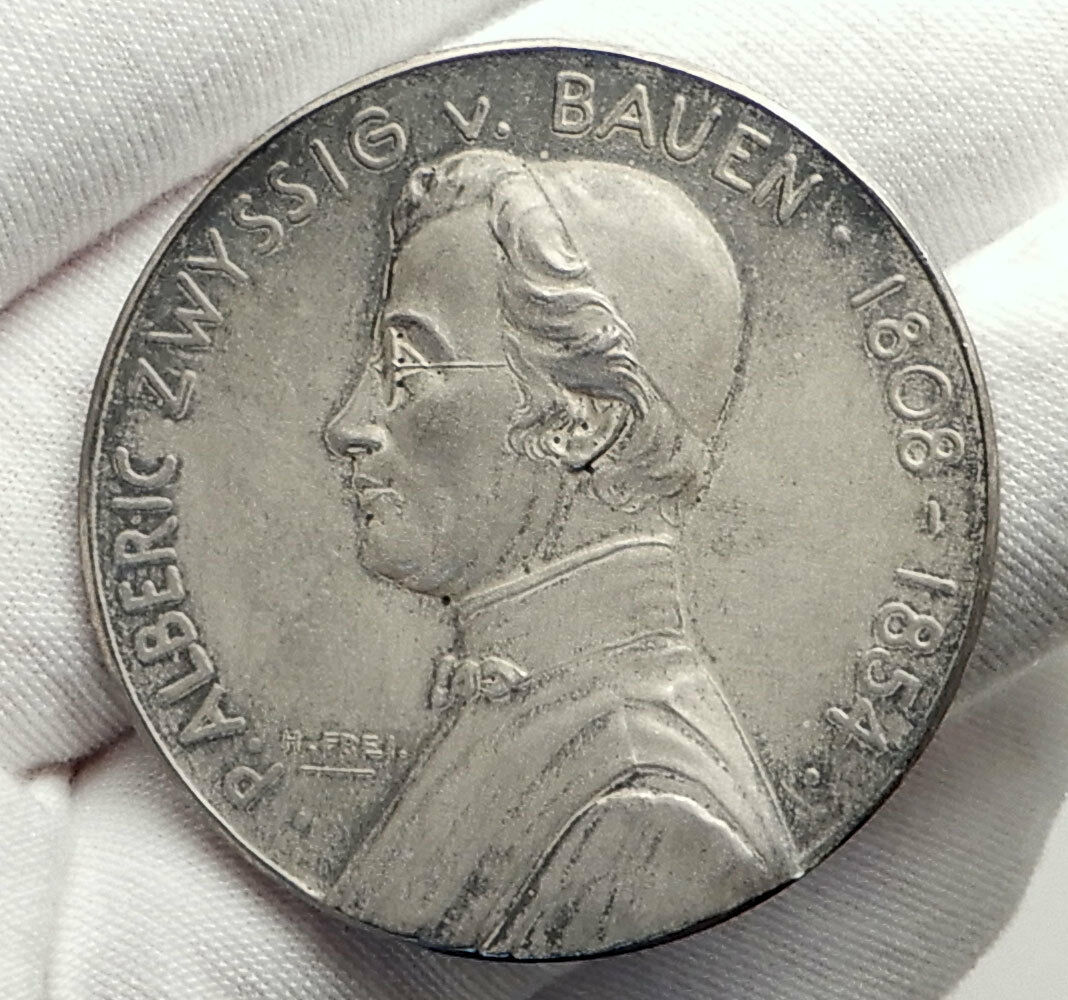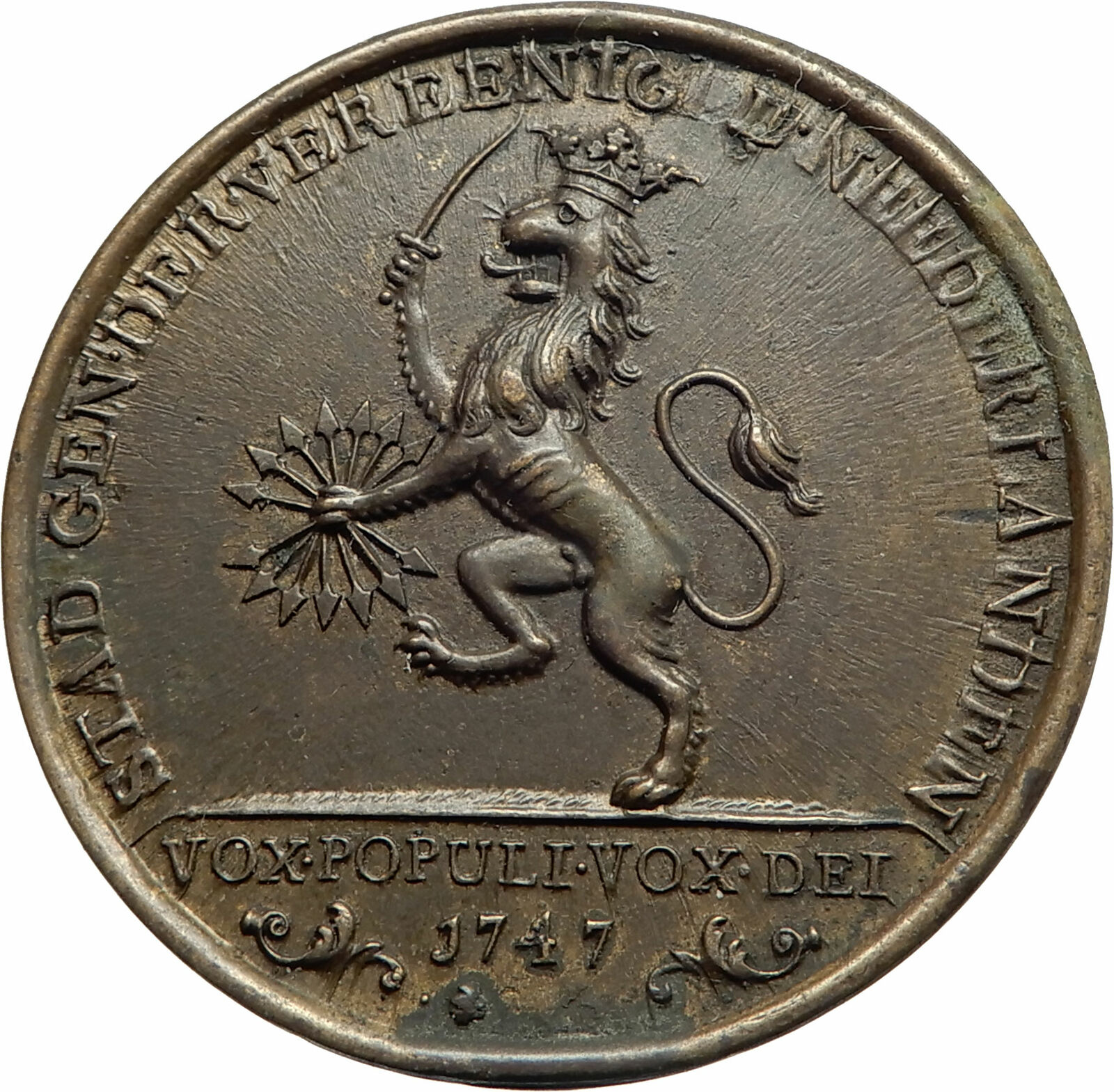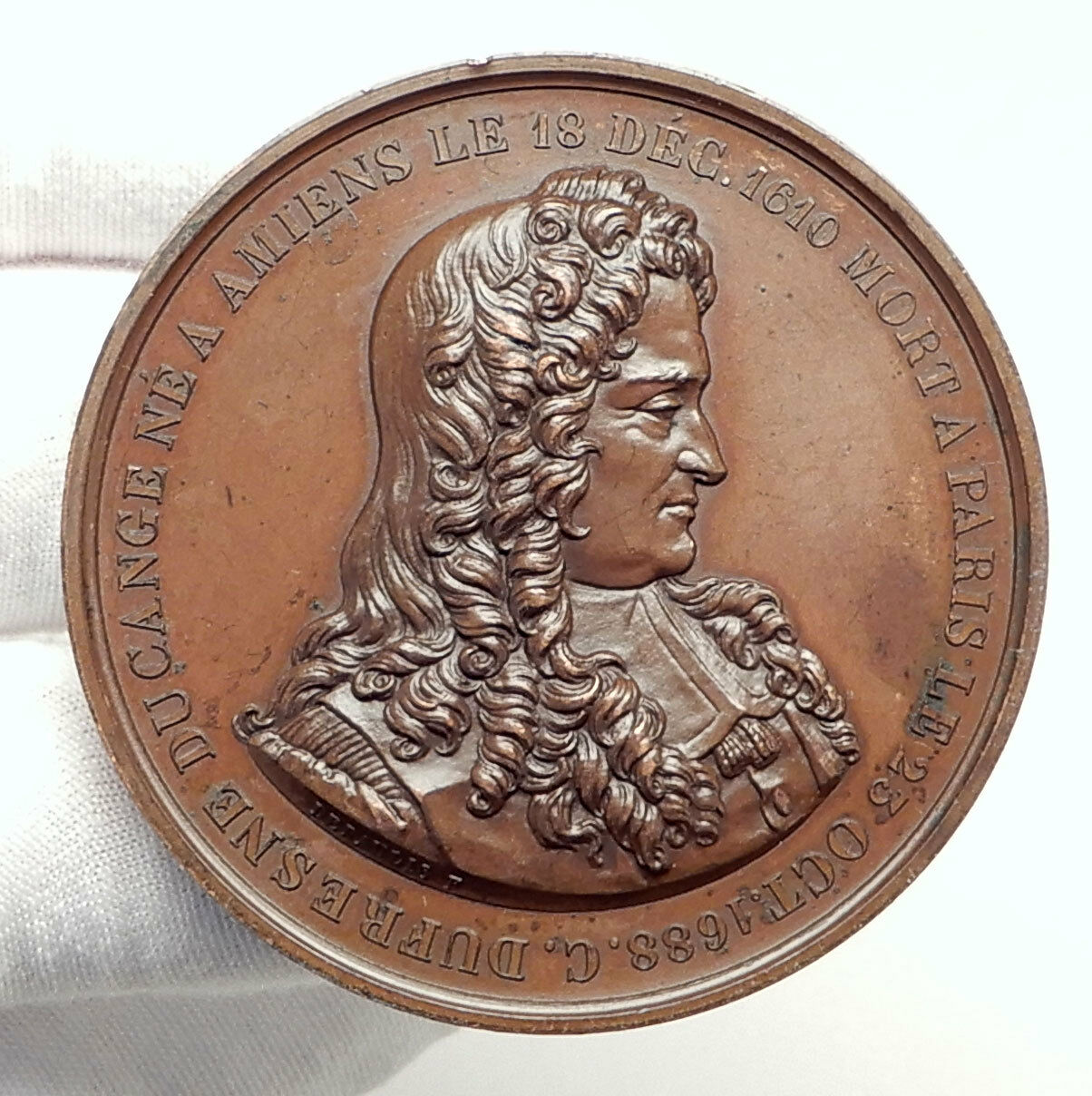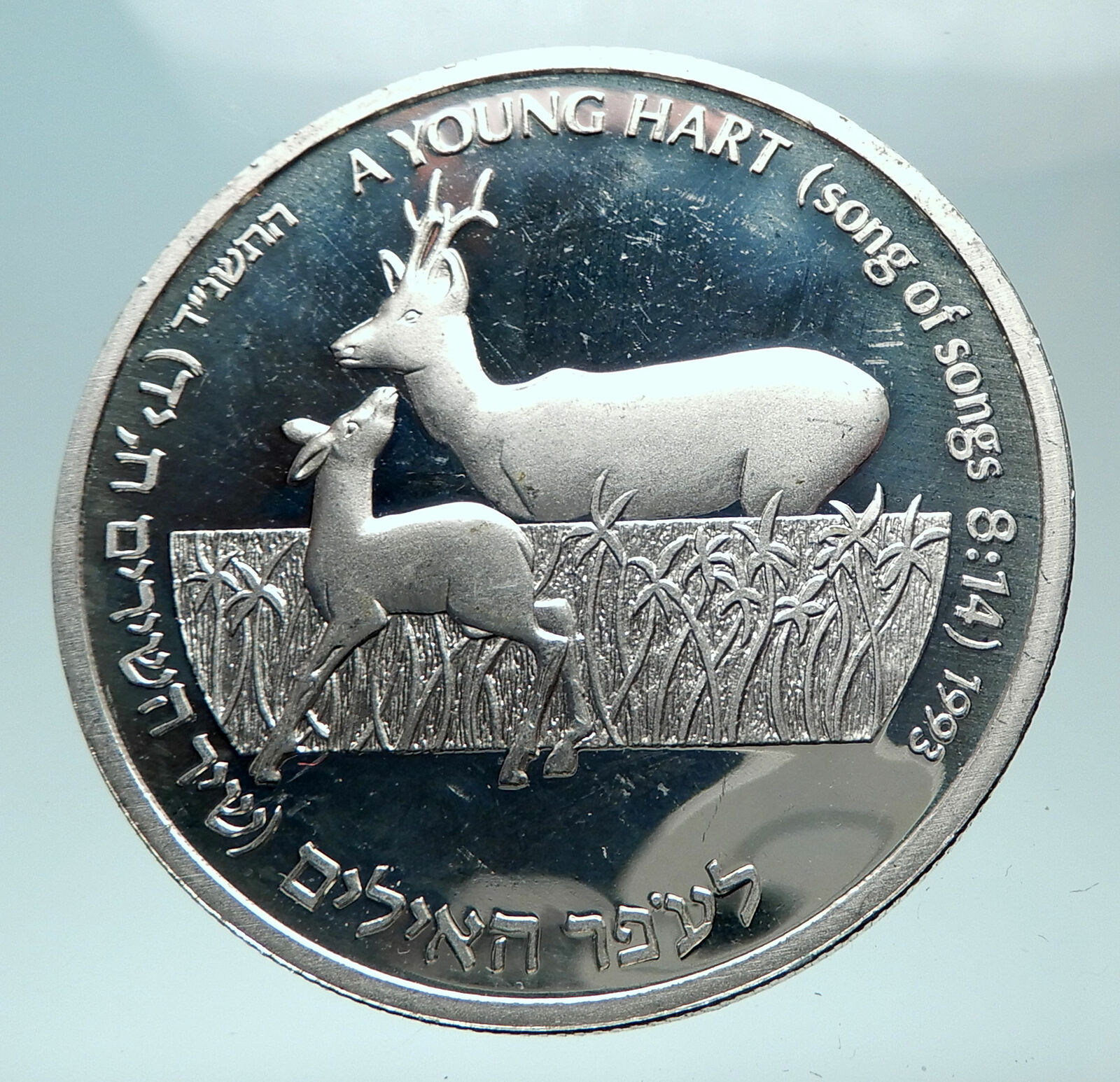|
Germany. German States. Kingdom of Cologne (Koln)
1875 Silver Medal 41mm
Certification: NGC UNC DETAILS 2839355-003
AUGUSTA DEUTSCHE KAISERIN KONIGIN VON PREUSSEN, Princess Louise of Prussia facing right.
UNTER DEM PROTECTORAT I.M. DER KAISERIN UND KONIGIN UIND S.K.K.H. DES KRONPRINZEN INTER- NATIONALE GARTENBAU- AUSSTELLUNG ZU COLN 1875, Wreath, dotted border.
You are bidding on the exact item pictured, provided with a Certificate of Authenticity and Lifetime Guarantee of Authenticity.
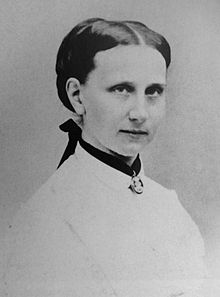 Princess Louise of Prussia (German: Luise Marie Elisabeth von Hohenzollern; 3 December 1838 – 23 April 1923) was the second child and only daughter of German Emperor Wilhelm I and Augusta of Saxe-Weimar-Eisenach. She was the younger sister of Frederick III of Germany (“Fritz”) and aunt of Wilhelm II of Germany. Louise was seven years younger than Frederick and two years older than his wife, Victoria, Princess Royal. Princess Louise of Prussia (German: Luise Marie Elisabeth von Hohenzollern; 3 December 1838 – 23 April 1923) was the second child and only daughter of German Emperor Wilhelm I and Augusta of Saxe-Weimar-Eisenach. She was the younger sister of Frederick III of Germany (“Fritz”) and aunt of Wilhelm II of Germany. Louise was seven years younger than Frederick and two years older than his wife, Victoria, Princess Royal.
Princess of Prussia
 Louise Marie Elisabeth was born on 3 December 1838 to Prince Wilhelm of Prussia and his wife Princess Augusta of Saxe-Weimar-Eisenach. Louise was named after her grandmothers, Louise, Queen of Prussia and Grand Duchess Maria Pavlovna of Russia and was known as “Vivi” in her family. Her parents were a happy but tense couple, and Louise had only one other sibling, Prince Frederick, who was seven years older. Upon her birth, Augusta declared that her duty in perpetuating the Hohenzollern dynasty was complete. Louise Marie Elisabeth was born on 3 December 1838 to Prince Wilhelm of Prussia and his wife Princess Augusta of Saxe-Weimar-Eisenach. Louise was named after her grandmothers, Louise, Queen of Prussia and Grand Duchess Maria Pavlovna of Russia and was known as “Vivi” in her family. Her parents were a happy but tense couple, and Louise had only one other sibling, Prince Frederick, who was seven years older. Upon her birth, Augusta declared that her duty in perpetuating the Hohenzollern dynasty was complete.
While Wilhelm showed some outward affection to his only son, he lavished attention on Louise, and often his unexpected visits to her schoolroom resulted in them playing together on the floor. Mother and daughter however were not close, with Augusta’s presence filling Louise up with awe; one account states that when Augusta encountered her daughter, Louise “involuntarily drew herself up to her full height, and sat stiff and constrained as for her portrait, while she inwardly trembled lest her answers should prove incorrect”. In the early 1850s, Louise was educated by Adèle de Pierre of Neuchâtel.
  Germany, officially the Federal Republic of Germany is a federal parliamentary republic in western-central Europe. It includes 16 constituent states and covers an area of 357,021 square kilometres (137,847 sq mi) with a largely temperate seasonal climate. Its capital and largest city is Berlin. With 81 million inhabitants, Germany is the most populous member state in the European Union. After the United States, it is the second most popular migration destination in the world. Germany, officially the Federal Republic of Germany is a federal parliamentary republic in western-central Europe. It includes 16 constituent states and covers an area of 357,021 square kilometres (137,847 sq mi) with a largely temperate seasonal climate. Its capital and largest city is Berlin. With 81 million inhabitants, Germany is the most populous member state in the European Union. After the United States, it is the second most popular migration destination in the world.
Various Germanic tribes have occupied northern Germany since classical antiquity. A region named Germania was documented before 100 CE. During the Migration Period the Germanic tribes expanded southward. Beginning in the 10th century, German territories formed a central part of the Holy Roman Empire. During the 16th century, northern German regions became the centre of the Protestant Reformation.
The rise of Pan-Germanism inside the German Confederation resulted in the unification of most of the German states in 1871 into the Prussian-dominated German Empire. After World War I and the German Revolution of 1918-1919, the Empire was replaced by the parliamentary Weimar Republic. The establishment of the Third Reich in 1933 led to World War II and the Holocaust. After 1945, Germany split into two states, East Germany and West Germany. In 1990, the country was reunified.
 In the 21st century, Germany is a great power and has the world’s fourth-largest economy by nominal GDP, as well as the fifth-largest by PPP. As a global leader in several industrial and technological sectors, it is both the world’s third-largest exporter and importer of goods. Germany is a developed country with a very high standard of living sustained by a skilled and productive society. It upholds a social security and universal health care system, environmental protection and a tuition free university education. In the 21st century, Germany is a great power and has the world’s fourth-largest economy by nominal GDP, as well as the fifth-largest by PPP. As a global leader in several industrial and technological sectors, it is both the world’s third-largest exporter and importer of goods. Germany is a developed country with a very high standard of living sustained by a skilled and productive society. It upholds a social security and universal health care system, environmental protection and a tuition free university education.
Germany was a founding member of the European Union in 1993. It is part of the Schengen Area, and became a co-founder of the Eurozone in 1999. Germany is a member of the United Nations, NATO, the G8, the G20, and the OECD. The national military expenditure is the 9th highest in the world. Known for its rich cultural history, Germany has been continuously the home of influential artists, philosophers, musicians, sportsmen, entrepreneurs, scientists and inventors.
|









 Princess Louise of Prussia (German: Luise Marie Elisabeth von Hohenzollern; 3 December 1838 – 23 April 1923) was the second child and only daughter of German Emperor Wilhelm I and Augusta of Saxe-Weimar-Eisenach. She was the younger sister of Frederick III of Germany (“Fritz”) and aunt of Wilhelm II of Germany. Louise was seven years younger than Frederick and two years older than his wife, Victoria, Princess Royal.
Princess Louise of Prussia (German: Luise Marie Elisabeth von Hohenzollern; 3 December 1838 – 23 April 1923) was the second child and only daughter of German Emperor Wilhelm I and Augusta of Saxe-Weimar-Eisenach. She was the younger sister of Frederick III of Germany (“Fritz”) and aunt of Wilhelm II of Germany. Louise was seven years younger than Frederick and two years older than his wife, Victoria, Princess Royal.  Louise Marie Elisabeth was born on 3 December 1838 to Prince Wilhelm of Prussia and his wife Princess Augusta of Saxe-Weimar-Eisenach. Louise was named after her grandmothers, Louise, Queen of Prussia and Grand Duchess Maria Pavlovna of Russia and was known as “Vivi” in her family. Her parents were a happy but tense couple, and Louise had only one other sibling, Prince Frederick, who was seven years older. Upon her birth, Augusta declared that her duty in perpetuating the Hohenzollern dynasty was complete.
Louise Marie Elisabeth was born on 3 December 1838 to Prince Wilhelm of Prussia and his wife Princess Augusta of Saxe-Weimar-Eisenach. Louise was named after her grandmothers, Louise, Queen of Prussia and Grand Duchess Maria Pavlovna of Russia and was known as “Vivi” in her family. Her parents were a happy but tense couple, and Louise had only one other sibling, Prince Frederick, who was seven years older. Upon her birth, Augusta declared that her duty in perpetuating the Hohenzollern dynasty was complete. 
 Germany, officially the Federal Republic of Germany is a federal parliamentary republic in western-central Europe. It includes 16 constituent states and covers an area of 357,021 square kilometres (137,847 sq mi) with a largely temperate seasonal climate. Its capital and largest city is Berlin. With 81 million inhabitants, Germany is the most populous member state in the European Union. After the United States, it is the second most popular migration destination in the world.
Germany, officially the Federal Republic of Germany is a federal parliamentary republic in western-central Europe. It includes 16 constituent states and covers an area of 357,021 square kilometres (137,847 sq mi) with a largely temperate seasonal climate. Its capital and largest city is Berlin. With 81 million inhabitants, Germany is the most populous member state in the European Union. After the United States, it is the second most popular migration destination in the world. In the 21st century, Germany is a great power and has the world’s fourth-largest economy by nominal GDP, as well as the fifth-largest by PPP. As a global leader in several industrial and technological sectors, it is both the world’s third-largest exporter and importer of goods. Germany is a developed country with a very high standard of living sustained by a skilled and productive society. It upholds a social security and universal health care system, environmental protection and a tuition free university education.
In the 21st century, Germany is a great power and has the world’s fourth-largest economy by nominal GDP, as well as the fifth-largest by PPP. As a global leader in several industrial and technological sectors, it is both the world’s third-largest exporter and importer of goods. Germany is a developed country with a very high standard of living sustained by a skilled and productive society. It upholds a social security and universal health care system, environmental protection and a tuition free university education.

